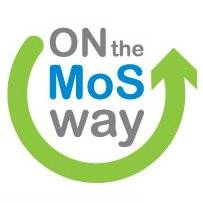Our world is in transition to a low-carbon economy and transport is not an exception. New technologies and initiatives are affecting the mobility landscape. among all modes of transport, Maritime transport is a backbone of trade and communications within and beyond the single market. Almost one-third of all intra-EU and three-quarters of the internationally traded goods (in tonnes) is seaborne. In terms of value, about half of EU international trade in goods is transported by sea. To maintain its role as a leader in the world, EU should take serious steps in digitalization and decarbonization of its maritime transport system.
Shipping operators must follow a long procedure of reporting obligations, for port calls. Since 2010, by the adoption of the Reporting Formalities Directive (RFD), a part of this reporting process is channeled via National Single Windows. The RFD has a primarily targeted to facilitate trade by simplifying and rationalizing reporting formalities.
However, there are still some problems to be solved. The initiative of establishing a European Maritime Single Window environment addresses the problem of the current inefficient port call reporting environment for maritime transport operators resulted from some limits of the RFD Directive. In addition, the current directive gives no guidance or an obligation to guarantee the development of common data models. Therefore, the main challenge is harmonization that is only imposed at the national level. The non-harmonised EU reporting environment makes reporting a very time-consuming while putting a heavy burden on the seafarers and company staff. The critical problem is that the Member States developed their own systems independently with different approaches. In short, the Directive suffers from not being legally binding which means not to allow the harmonized EU-Wide solutions to offer genuine benefits instead of net costs for shipping.
All the above problems consequently have lowered the shipping competitiveness in comparison to other transport modes. Moreover, It has led to dissatisfaction among the related professions in the maritime transport sector. The lack of harmonized ship reporting system has prevented an efficient and optimized flow of freight-forwarding by ships. The absence of a binding standard framework has introduced reporting interfaces which are technically different for practically each port call. It has put obstacles in synchronization between ship, departure ports, and destination port, which resulted in an increased lag time in ports. In a broader view, the mismatch of administrative processes affects the entire logistic chain across the EU including multimodal transport links; rail, road and inland waterway.
In 2016, the European Commission launched a consultancy process to identify what revision is needed on the RFD Directive. A large number of responses from a wide range of stakeholders have reinforced the EC’s view that a revision of the RFD is needed. As a response, the European Commission has recently prepared a revision of the Reporting Formalities Directive in form of “European Maritime Single Window environment” proposal. In the meantime, the Commission published at the end of July 2017, a further public consultation in the form of an Inception Impact Assessment. The paper again correctly identifies the major problems and factors behind the failure of the Directive and for the first time indicates possible directions that the revision process might take.
European Maritime Single Window environment is expected not only to simplify via harmonization of the vessel reporting obligations but also to streamline the customs processes. Among all actors and shipping stakeholders, the European shipowners believe that this initiative can be achieved if all stakeholders and authorities are fully committed to making a success out of this.
Furthermore, with the support of the European Community Shipowners’ Associations (ECSA) and a few short-sea shipping companies, the EU Commission is working on a pilot project: “e-manifest” to integrate it to the European Maritime Single Window. The scope of the pilot project is a part of the data contained in a carrier’s cargo manifest. No World Shipping Council members lines are involved in the pilot project as they claim that it suffers from a lack of political commitments in implementation and lack of clarity to its objectives.
However, the European Commission is still proceeding the pilot project to possibly guide them in their revision of the RFD. While testing with companies on an extremely limited basis starting in June, still no results are available.
Author: R. Karimpour


